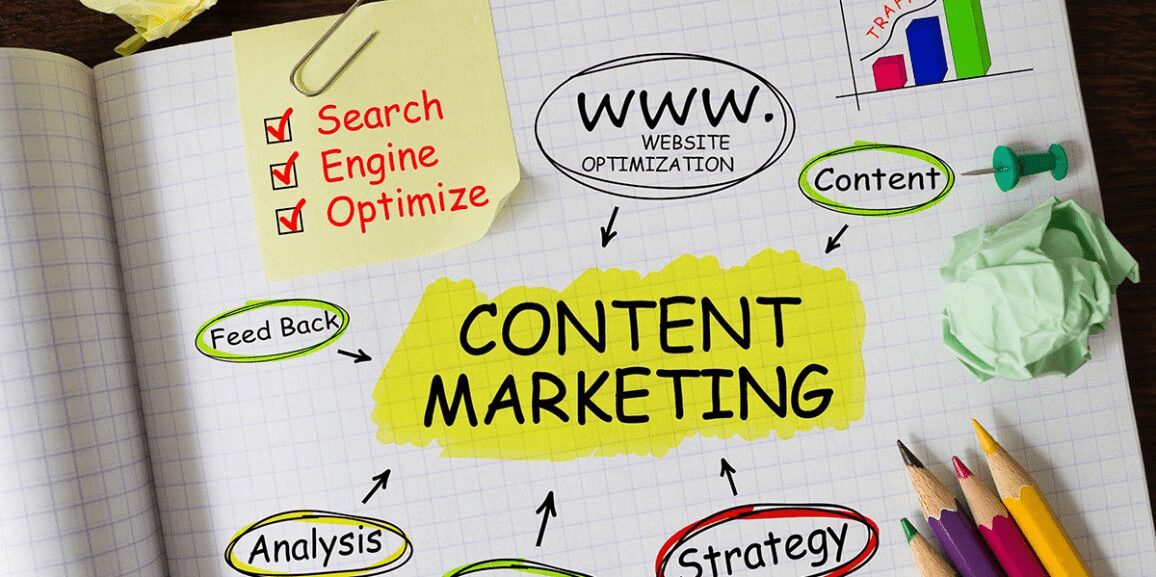Marketing vs. Content
Let's look at a simple explanation of marketing vs. content.
- Marketing: an encompassing strategy to promote and sell a brand
- Content: publishing to inform using editorials. Reveals strategic details.
Marketing and content can help businesses extend their influence and reach a targeted audience. Marketing is about product development, research, distribution, sales, PR, and a connection to each customer.
Content is based on getting the necessary inquiries and sales for specific brands. It is a subtle strategy to draw people in rather than to advertise subtle messages directed toward them.
Marketing and Concept Are Older Than They Look
The concept of marketing began in the early 1950s. Traditional marketing efforts allowed US citizens to enjoy learning about products and services being offered. In today's society, both marketing and content works very well together. Marketing and content actually work better hand in hand because their brand goal is the same.
During earlier years marketing entertained viewers in advertising brands. The ads on TV were just as entertaining as the main event. Due to advanced technology today, holding a consumer's attention may be between 8 – 12 seconds.
Content and Marketing Differences
A very faint difference between marketing and content involves communicating with the public. In marketing, it is not about talking or striking up a conversation. Instead, brands are showing consumers what they are selling and eagerly highlighting the benefits of the product or service.
With content, there is more strategy in creating online communication to reach and talk with consumers. Buyers or consumers can use blogs, social media, etc. to comment back to a particular brand, while the brand can also respond. Creating blogs related to your industry and services you provide can aid in marketing like Tyreright’s blog which are on on car reviews, car care etc.
Communication reveals a trust that will keep consumers returning to your brand.
The goals of both content and marketing in the business world include:
> increasing Sales
> growing brand awareness
> driving traffic
> targeting a specific audience
Is there a difference and if so, what sets them apart within their likeness? The most discernible difference between marketing and content is how the product or service is distributed. Here is what marketing uses as favored mediums:
> Magazines
> Mailing
> Newspapers
> Outdoor Ads
> Radio
> TV
Content uses modern day technology as its distribution avenues. These can include the following:
> animated gifs
> blog posting
> e-literature
> email
> custom infographics
> podcasts/webinars
> social media
> videos
Another key factor in the difference between content and marketing is costs. Marketing avenues like TV are more expensive than content. TV can cost thousands of dollars just for a 30-second spot. When in contrast, content today costs far less than marketing venues.
For example, a short “How To” content video on the homepage like that for Ygrene pace financing costs very less.
Remember the result of using either a traditional marketing scheme or content is all about the customer or personalizing your product and/or services. The differences between marketing and content are minimal.
Content and Marketing Schematics
Marketing vs. content benefits businesses because they need each other for there to be a successful platform. Marketing helps to develop a frame of reference for reaching the public. Marketing follows each buyers preferences, research is conducted, and a strategy for product features and pricing is established.
Content on the other hand also fits into this system. Content develops educational research to determine which technology venue will reach a specific type of audience. Narratives are used behind content marketing, like looking at cycles during peak sales.
Marketing and content are interrelated but are distinct in how they best serve the consumer. Content in business is focused on how to get their product or service to be well received and how it will be disseminated.
Marketing has always been about getting information out to consumers via what they see, what they hear, what they receive, and how well a company follows-up after the point of purchase.
Marketing includes a content concept and a marketing plan to see who would be interested in a particular product, who is more likely to purchase it, promoting its features, and how to get it to consumers using the right media protocols.
Marketing and Content – An Ads Mirror Image
Correlated benefits involving marketing vs. content includes getting the buyer or consumer's attention. As you can tell from the content media channels, this is an interactive process.
The Internet gives content a platform for consumers through videos and/or storytelling to present the product or service to consumers before they buy it. Content also reaches far more consumers worldwide than a marketing run Ad or printed materials.
Content and marketing do not obviate each other. Factually, a company remains viable and successful because it uses both disciplines smartly.
Marketing products that have had longevity like Kool-Aid which was created in 1927, became a marketing phenomenon. The Kool-Aid brand started using marketing strategies to advertise their product.
Today, Kool-Aid has incorporated content to increase its sales and continued popularity exponentially by using interactive storytelling and a mascot pitcher in an interactive way. This goes to show that when you build an audience that trusts you, they will in all likelihood continue to purchase your products.
Remember that content is a great marketing tactic. The goal of content is to ensure that your brand is delivered consistently to create consumer trust. Consumers will return regularly plus they will tell their friends. Your brand succeeds when marketing is entertaining, inspiring, and educational.
Summary
Content can reach the attention of a brand's audience but will they really see it? Here is where marketing enters. Marketing helps to get your content viewed via top search engines and keywords.
Marketing helps to develop a website's look and quality while content endorsements are placed there to appear seamless and entice consumers to buy and trust your brand.
To say there is a significant difference between content and marketing is an unwise thought. Both systems are needed. Marketing is the process of creating and distributing valuable content. Every business should have a content and marketing strategy in place.
One of the best ways to enhance your content to a mass audience is through marketing resulting in higher ratings. If you want your brand available to a wider audience, then combine marketing and content so that your hard work will be seen and used.
About the Author: Helen Cartwright
Helen is a passionate blogger, who excels in the Digital Marketing and Technology niche. When not wired in marketing strategies she ghost-write for a variety of authors who have their work published on leading online media channels such as The Huffington Post and Entrepreneur.com



